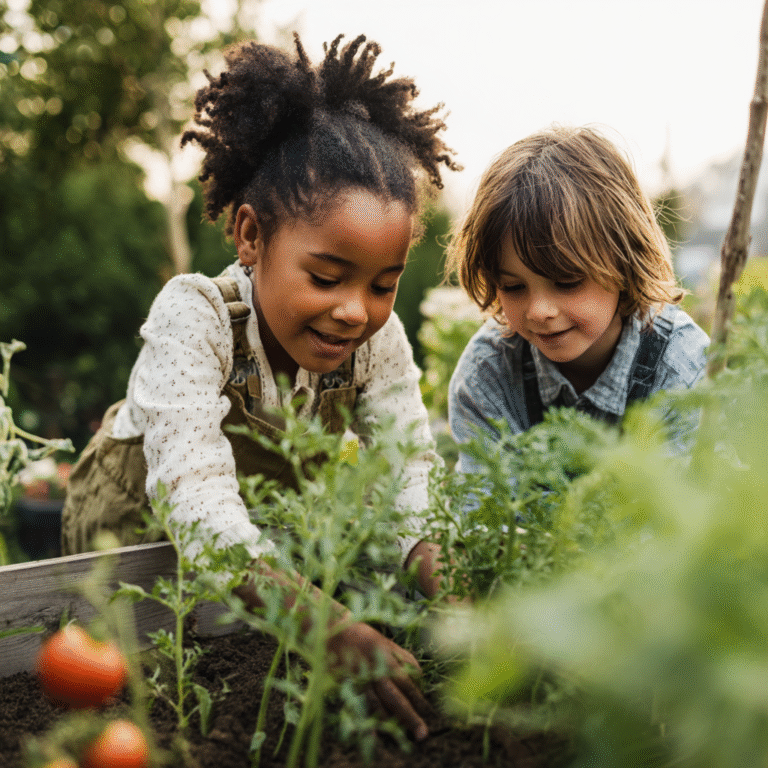In the journey of childhood, how we perceive challenges can shape a lifetime of learning and confidence. Cultivating a growth mindset—the belief that abilities and intelligence can develop with effort and patience—is a gentle gift we can offer growth mindset in children. It’s not about pushing harder or expecting perfection but about encouraging curiosity, resilience, and self-compassion. In this guide, we’ll explore simple, heartfelt ways to nurture a growth mindset in your child, helping them embrace every step of their unique path with kindness and courage.
Table of Contents
- Understanding the Foundations of a Growth Mindset in Young Minds
- Creating a Supportive Environment That Encourages Curiosity and Resilience
- Practical Strategies to Celebrate Effort and Embrace Challenges Gracefully
- Fostering Emotional Awareness to Strengthen Persistence and Confidence
- Concluding Remarks
Understanding the Foundations of a Growth Mindset in Young Minds
At the heart of fostering resilience and a lifelong love of learning in children lies a simple yet powerful principle: the belief that abilities can be developed through effort and persistence. When young minds embrace challenges as opportunities rather than obstacles, they begin to see failure not as an endpoint but as a stepping stone toward growth. This mindset cultivates a safe space for experimentation, where curiosity thrives and fear of mistakes fades away. By valuing the process over immediate results, children learn to trust their potential and approach new experiences with enthusiasm.
Parents and educators play a crucial role in shaping this perspective by modeling and reinforcing specific behaviors and attitudes. Encouraging children involves:
- Praising effort and strategies rather than innate talent, nurturing a sense of agency.
- Asking reflective questions that prompt children to think about what they learned and how they overcame hurdles.
- Creating a culture of curiosity where questions and exploration are welcomed and celebrated.
These small shifts in daily interactions can empower young learners to embrace challenges with optimism and develop the resilience needed for lifelong growth.
Creating a Supportive Environment That Encourages Curiosity and Resilience
To foster an atmosphere where children feel safe to explore and take risks, it’s essential to focus on *emotional security* and *positive reinforcement*. When young learners know they won’t be judged for making mistakes, they become naturally inclined to ask questions and experiment boldly. Creating spaces filled with encouragement — whether through heartfelt praise or gentle guidance — nurtures their innate desire to discover. Prioritizing open dialogue and actively listening to their curiosities validates their thoughts, empowering them to develop deeper problem-solving skills and personal resilience.
Simple daily rituals can make a world of difference in cultivating this nurturing environment. Consider incorporating:
- Celebration of effort: Acknowledge processes over outcomes to emphasize growth.
- Modeling vulnerability: Share your own learning challenges to humanize setbacks.
- Curiosity corners: Dedicated spaces filled with books, puzzles, or nature objects for hands-on exploration.
- Mindful breaks: Encourage reflection to manage emotions and bounce back from frustrations.
By weaving these practices into daily life, you help children build a resilient mindset that treasures curiosity as the very foundation of lifelong growth.
Practical Strategies to Celebrate Effort and Embrace Challenges Gracefully
Encouraging children to recognize and celebrate their efforts rather than just the outcomes lays the foundation for resilience. Instead of a simple “well done” for success, try acknowledging the hard work and persistence behind the achievement. Phrases like “I noticed how much time you spent practicing” or “Your dedication really shows” can shift the focus to the process, making challenges feel like valuable learning opportunities rather than obstacles. This subtle yet powerful change helps children internalize the value of persistence, fueling their confidence to tackle future difficulties with curiosity rather than fear.
Creating a supportive environment where mistakes are viewed as stepping stones is equally vital. You can empower children by modeling graceful responses to setbacks yourself — sharing how you’ve learned from your own challenges. Engage in conversations that highlight what was gained through the experience, using prompts like:
- “What did this teach you?”
- “How might you try a different approach next time?”
- “What part of this was most interesting or surprising?”
By making reflection and experimentation a natural part of your daily interactions, children learn to embrace challenges with grace and view effort as a meaningful journey of growth.
Fostering Emotional Awareness to Strengthen Persistence and Confidence
Developing emotional awareness in children is a foundational step toward building resilience and self-assurance. When kids learn to identify and express their feelings, they gain a deeper understanding of their inner world, which empowers them to navigate challenges with a clearer mind. Encourage open conversations where emotions are named without judgment, allowing children to feel heard and validated. This practice nurtures empathy and creates a safe space for them to explore their reactions to setbacks, transforming frustration into motivation rather than discouragement.
Supporting emotional literacy goes hand-in-hand with fostering persistence and confidence. Here are some gentle approaches to consider:
- Model emotional expression: Share your own feelings and coping strategies to demonstrate healthy management.
- Validate their experiences: Acknowledge their emotions as real and significant, avoiding minimization.
- Teach self-regulation techniques: Introduce simple breathing exercises or mindfulness activities to help calm intense emotions.
- Celebrate effort, not just outcomes: Reinforce the value of trying and learning, which builds a child’s confidence to face new challenges.
By embedding these practices into daily interactions, children are gently guided toward a mindset that views obstacles as opportunities to grow, laying the groundwork for persistence and unwavering self-belief.
Concluding Remarks
As we wrap up a growth mindset in children, it is heartwarming to remember that this journey is as much about patience and love as it is about encouragement and guidance. Every small step your child takes towards embracing challenges and learning from mistakes is a victory worth celebrating. You’re not just helping your child grow—you’re nurturing a lifelong love for learning that will carry them through every twist and turn ahead. So, take a deep breath, trust the process, and know that with kindness and consistency, you’re planting seeds that will blossom beautifully in time.
Related Products
-
Sacheu Lip Liner Stay-N Peel Off Lip Stain — Long …
Beauty $12.00 -
Dokotoo Women’s Casual Loose Overalls Jumpsuits On…
Clothing $31.88 -
Sale!
AUTOMAN-Garden-Hose-Nozzle, ABS Water Spray Nozzle…
Home Original price was: $9.99.$8.99Current price is: $8.99.




